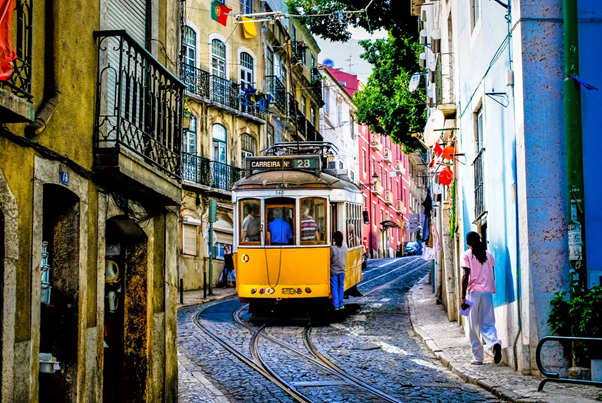
Life In Portugal After Emigration
- General
- July 31, 2022
- No Comment
- 325
According to reviews of emigration to Portugal, this is a safe, hospitable country with a comfortable climate and a leisurely pace of life. Moving to this European state is suitable for freelancers, remote workers, retirees, entrepreneurs and anyone who appreciates peace of mind.
Most often immigrate to Portugal through investment, work, education, family reunification. Having received a residence permit and having lived on it for 5 years in the country, it is allowed to request the status of a permanent resident, and then citizenship. During the migration process, it is important to strictly comply with the law and follow the procedure, so contacting specialized companies, https://www.landingpad.pt, can facilitate the issuance of a residence permit.
Advantages of Portugal
Membership of the country in the European Union: permanent and temporary residents can travel freely within the member states, and Portuguese citizens can even live without additional permits.
Mild subtropical climate: in summer the average daily temperature ranges from +25 to +28 °С depending on the region, in winter – +14 °С.
Security: Portugal’s crime index is 29.89, which is lower than Belarus (60.27), Ukraine (48.28), Russia (40.13) and France (49.20).
A diverse landscape: living in Portugal, you can go to the mountains or relax on the shores of the Atlantic Ocean. Residents have the opportunity to surf, dive, fish, organize mountain hikes.
Tax incentives: foreigners who live in Portugal on a residence permit for at least 183 days a year and have housing are exempt from paying tax on income received outside the country.
Calm pace of life, slowness and friendliness of the inhabitants.
Cons of Portugal
Unemployment: more than 11% of people aged 15 to 64 are unemployed, and finding a job is difficult – there are few high-paying vacancies, and few people are interested in low wages.
High taxes: for non-habitual residents, the tax rate is progressive and ranges from 14.8 to 48%.
Low wages: the minimum wage in Portugal is 775 EUR, while in neighboring Spain – 1,125 EUR, France – 1,554 EUR.
Bureaucracy: Communication with officials can be delayed due to long lines and the slow work of government agencies.
Difficult traffic: the country has many narrow roads with many turns and dangerous slopes, all autobahns are paid. For example, travel on the A8 Lisbon-Leiria highway will cost 9.55 EUR, along the A2 Lisbon-Paderni – 20.95 EUR.
Housing
The classification of housing in Portugal is peculiar, in the description of apartments and houses you can find the designations T0, T1, etc. The number next to the letter “T” corresponds to the number of separate bedrooms. T0 is a studio apartment, T1 is housing with a separate bedroom, living room and kitchen, that is, a two-room apartment.
There is no central heating in the apartments, people use split systems, electric heaters, fireplaces and heated sheets. Near the coast, residents complain about dampness, they have to use dehumidifiers.
Work and salaries
Qualified employees are in demand in Portugal. For big salaries it is worth going to major Portuguese cities. The most active life is in Lisbon and Porto, where the offices of large companies are located. If you know Portuguese or English, there will be no problems with employment. In the south of the country, seasonal vacancies are mainly offered, in winter there is little activity. You can find a job through the Employment Service, private agencies, websites, forums, groups on Facebook, LinkedIn. Most often required:
- doctors;
- IT specialists;
- laborers – painters, welders, tilers, etc.;
- teachers;
- tourism workers.
Portugal is a country of measured life with a friendly population. There are many leisure options, the ocean and a warm climate. Fans of this lifestyle can safely move to Portugal and independently evaluate all the advantages of living in this country.






